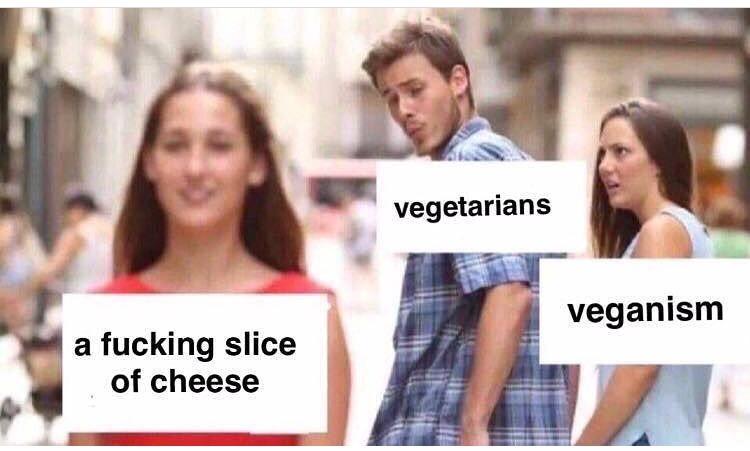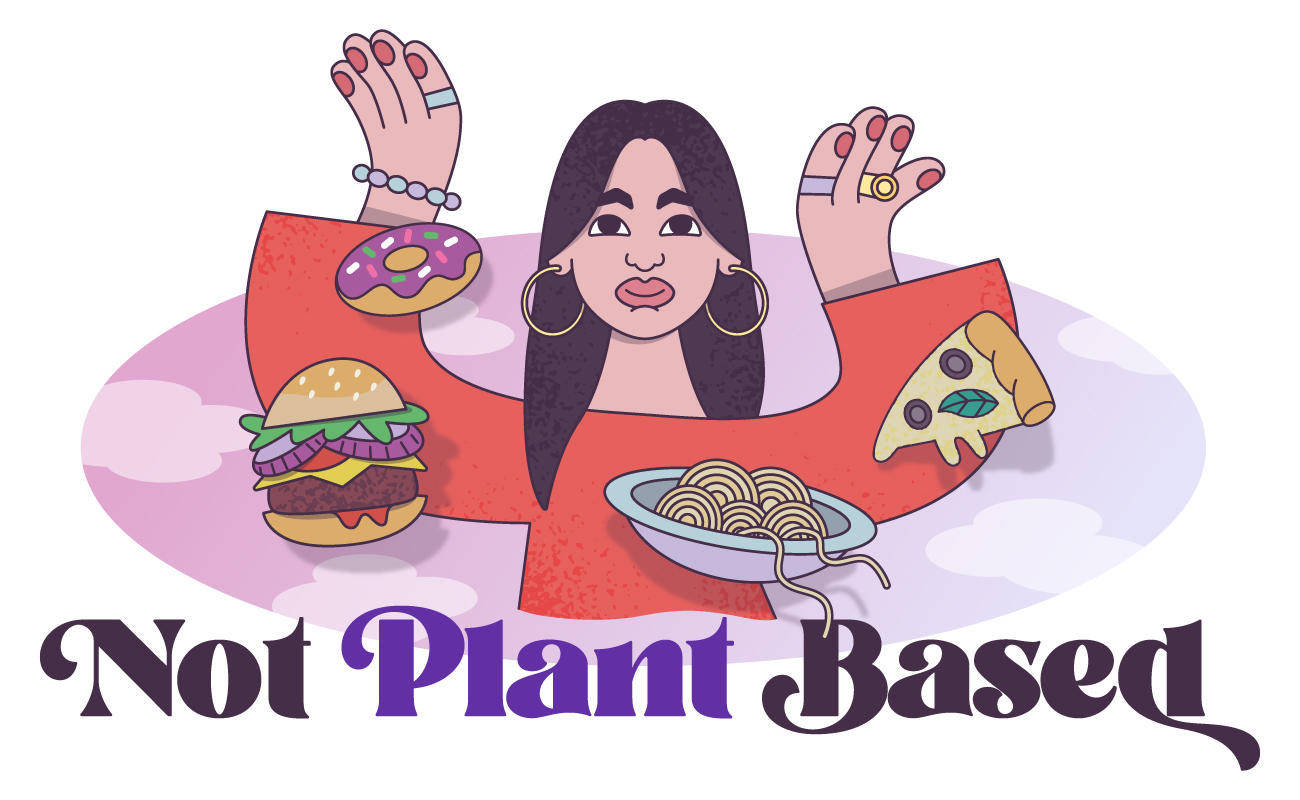
The sacred thing about writing for and editing this website is the chance to ease the pain I felt – and sometimes still feel – for someone else. Sure, burger-eating photo-shoots and three-minute radio segment are cool, but they’re unlikely to pluck me out from a dark cloud. Nor will they change how I see the world and solidify the justification for my existence. The truth is, when you’re shimmied out the back of the studio to make room for the next guest with a (probably diet) book to plug, it all seems so…meaningless. Thank heavens for the legions of loyal readers who kindly get in touch, reminding us that our efforts do not go unnoticed. You have no idea the difference your words make to a hapless, worn-out journalist, convinced the only person who gives a shit about her writing is her own mother. Your messages are like gunpowder, firing me up to ambush the next foolish ‘health’ blogger who threatens your capacity to eat in peace. So, with this in mind, when a damning message lands in my inbox, it hits me like a sucker punch to the stomach. I’d rather go for a romantic dinner with Jacob Rees Mogg than offend my readers. But last month I did. And I’m sorry.
Some voiced concern that Not Plant Based (specifically, me) appeared to be promoting anti-vegan sentiment; unfairly equating eating disorders with veganism. I don’t blame you for arriving at such conclusions. Sometimes, in a flurry of outrage, I can be a bit of a dick. But I wanted to set the record straight: in no way, shape or form am I ‘against’ veganism. In fact, I am a committed environmentalist and admire anyone who endeavours to make the world a better, more sustainable place – by whichever means they choose to do so. I also think it is possible to have a healthy, balanced diet and be vegan, providing you’re prepared for some pre-planning. I do not, however, advocate vegan diets for people whom struggle with eating disorders. And on this principle, I’m afraid I will not budge.
This month, eating disorder charity B-eat (who we have long supported) supported recommendations from the Royal College of Psychiatrists about the treatment of vegan eating disorder sufferers, stating that treatment services must do more to accommodate patients with these dietary requirements. Don’t shoot me: I find this problematic. For the sake of transparency, I wanted to write an honest explanation of my reasons for this belief. Firstly let me be clear – I am not saying the veganism causes eating disorders. As a former patient myself, I would never make such an ignorant presumption. My point is simply that it doesn’t help. An eating disorder is a wretched, demonic tyrant that clutches on to any metaphorical straw to keeps it’s victim trapped. A handful of lucky patients may indeed be able to reach true, long-term recovery and be vegan, but I am yet to meet them. From where I’m standing – and given the swarms of people I’ve spoken to – it seems any restrictive diet is far more likely to hinder recovery. I have not arrived at this conclusion because I’m a climate-change-denying twat who doesn’t like vegetables. Rather, because of what I’ve been told by you.
View this post on Instagram
In the last six months, the volume of desperate messages has tripled. Hundreds are sick – some fatally – with no hope of effective help on the horizon. Their last ditch attempt, whilst they wait for the illness to swallow up (no pun intended) more of their lives, is to message me – a journalist, with no medical training. It is not an exaggeration to say that the majority of these cases have, in someway, been worsened by veganism. Here is a selection of examples:
ANON 1:
‘By the time I was 16 I was sectioned into an adult psychiatric unit with anorexia, unable to eat anything at all. My strict food avoidance stayed with me and when I “was weight restored” by my twenties I was back out into society and the strict rules came into play around veganism. It was a very natural path for me to stay on. It was obsessional but I hid behind the label of being a vegan to throw anyone off challenging my behaviours. It became worst when I was pregnant as I felt this huge obsession to create the most nutritionally best place to grow a healthy child. I would live off all foods from the health food shop only, all organic vegetables, no dairy at all.’
ANON 2:
‘Looking back, I have no doubt that becoming a vegetarian allowed me to exert more control over what I was eating than I’d been able to before, given I was living at home and pretty much reliant on what my parents cooked and bought. I’d then been fully vegetarian for about three years when I made the decision to move towards veganism. This was a time when I suddenly had a lot more control over what I was eating, buying and cooking for myself for the first time. I’d wanted to become vegan for a while, still for ethical reasons but I think this time around there was definitely an element of “this will make me healthier and probably thinner” and I decided to also take competitive running back up again too about this time. I was spending so much time immersed in what food were vegan, planning out my meals, looking at ingredients lists… it was such a messy combination for someone who had a complicated history with food. I think the restriction associated with it had a lasting effect and helped put into place some habits that took a long time to break, or still haven’t been broken.’
ANON 3:
‘I first developed a restrictive eating disorder when I was 9. I became bulimic when I was 17 and became pescatarian in order to cut out foods. I was diagnosed with anorexia when I was 18 and by this point was basically just eating soup. I would say I was vegan in order to have complete control of the one meal a day I was eating, and so that I could get out of joining in in situations where there was food. Initially, I honestly wasn’t that enamored by the moral and ethical side of veganism- I never stopped wearing leather shoes! But this did gradually change. I think as well with the purity-obsessed and competitive nature of anorexia, veganism is naturally appealing; you are morally on higher ground than other people, you have control and can abstain when others can’t. It made restriction very easy. Nobody pushed you to eat things they’d made, questioned the fact you just ate soup and steamed veg, or quizzed you on the fact that you were pale and tiny…
…I am 21 now and have not looked back on ditching veganism. Sadly, I have had two relapses since I reintroduced meat, and have discovered in the process that I can massively restrict my intake and pleasure from food even when I still eat animal products- and the fact that I hadn’t cut them out again acted as a guise for a while, and hid my restrictive eating. If I’m having a bad day and someone won’t stop harping on about how bad meat eaters are, I do still get prangs of guilt.’
ANON 4:
‘I have tried veganism after also being vegetarian for years, and suffering with severe and enduring AN. I am no longer vegan for the sake of trying to recover. Hoping to return to it if I can get well, but I am still very unwell.’
ANON 5:
‘I was raised vegetarian from the age of ten and went vegan at 20, then raw vegan at 22. I had severe eczema, asthma, raynauds, exhaustion, IBS, lymph nodes up all over, and such weird blood counts my doctors were really concerned. I thought the more I restricted, the better my health would be. Eventually I started dreaming of steak, having never eaten it. So, with the support of my omnivore partner, I ate one. And kept eating all meats, all food types. Suddenly, for the first time in my life, I felt AWAKE. I could get through the day without my joints screaming in agony, without IBS, without feeling freezing cold all the time. I’m not going to say my eczema and asthma disappeared, but they did improve. And now I am ANGRY. I am angry because even before I was vegetarian, my family rarely ate meat and I was fed very small portions overall. My mother is also vegan now, and has gall and kidney stones and looks so frail and tired. The same goes for my younger sister – she faints often and is exhausted. Neither are happy that I’m an omnivore, but I feel like a whole new person.’
Before I get harangued for being disgustingly unbalanced and one-sided, let me caveat that I did not request this angle from readers. Some of these messages were responses to a request for tales of experiences of veganism from people with ED, whilst others were sent unprompted. And again; I am not anti-vegan. I hope, one day, that every brave and brilliant person who has survived an eating disorder can be fully confident that they are in control of their food choices – not their eating disorder. But until that day comes, I’m not convinced that a diet that rejects entire food groups is compatible with full recovery. For me anyway, going vegan is simply not worth the risk.




I’ve personally been concerned about this for a while. Morally I agree with veganism as a concept but I know that my ED brain sees it as a return to huge restriction and checking the back of every packet. This is not to say that veganism causes ED but that the ED finds a safe harbour in veganism.